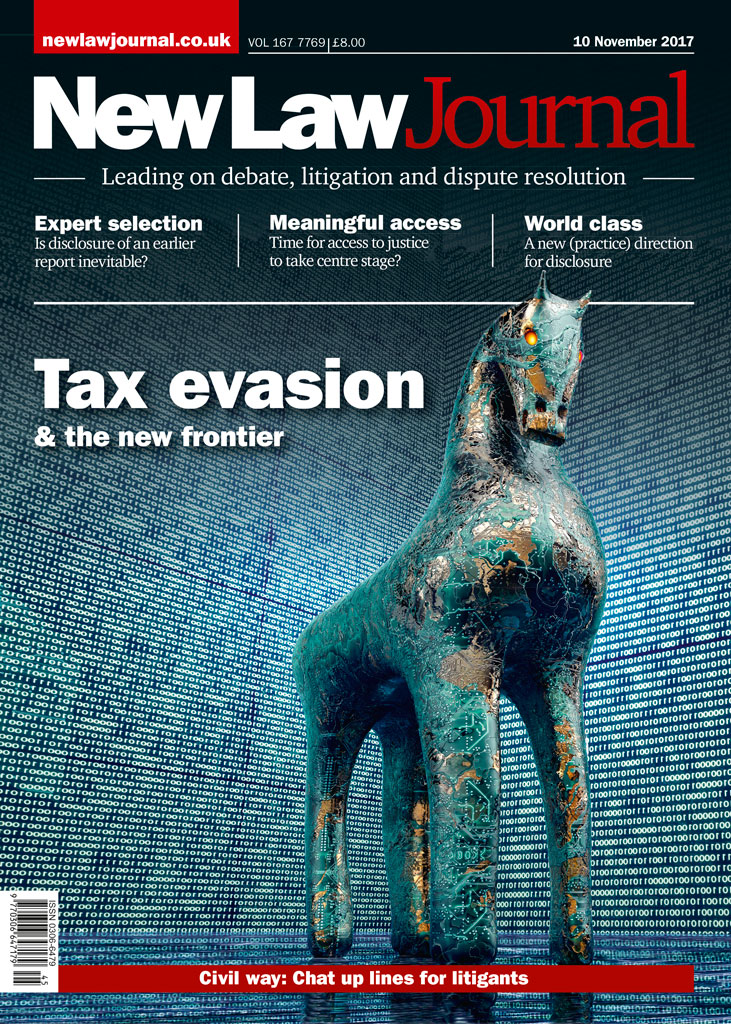
Dominic Regan recounts tales of momentous show downs, fibbing & worse in & out of court
When instructing a new expert, is disclosure of an earlier report inevitable? Dr Chris Pamplin reports
John O’Hare on how to reduce costs which are reasonable but disproportionate
Webchat with HMCTS. Look, no PD! Another lessee bonus. Killing off the relatives.
Cancellation periods & enforceability. Nathan Webb discusses potential pitfalls for traders
Corporate facilitation of tax evasion: the new frontier. A special two-part analysis by QEB Hollis Whiteman Chambers
It’s time for the profession & the judiciary to engage constructively to create a world class civil disputes regime, say Ed Crosse & David Bridge
Post Unison , the government, the courts & the profession are all looking at the issue of access to justice & what it means to ensure it’s a reality, says David Greene
The new Criminal Finance Act may place ‘unmanageably onerous obligations’ on multinationals, barristers have warned.
MOVERS & SHAKERS

Keystone Law—Milena Szuniewicz-Wenzel & Ian Hopkinson
International arbitration team strengthened by double partner hire

Coodes Solicitors—Pam Johns, Rachel Pearce & Bradley Kaine
Firm celebrates trio holding senior regional law society and junior lawyers division roles

Michelman Robinson—Sukhi Kaler
Partner joins commercial and business litigation team in London







